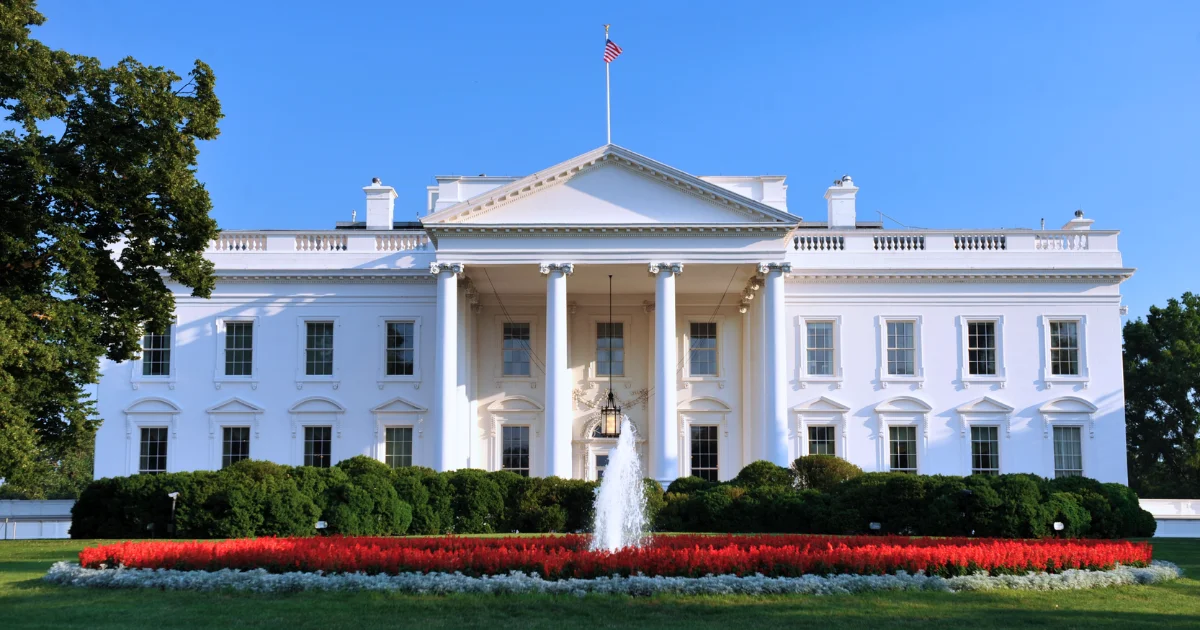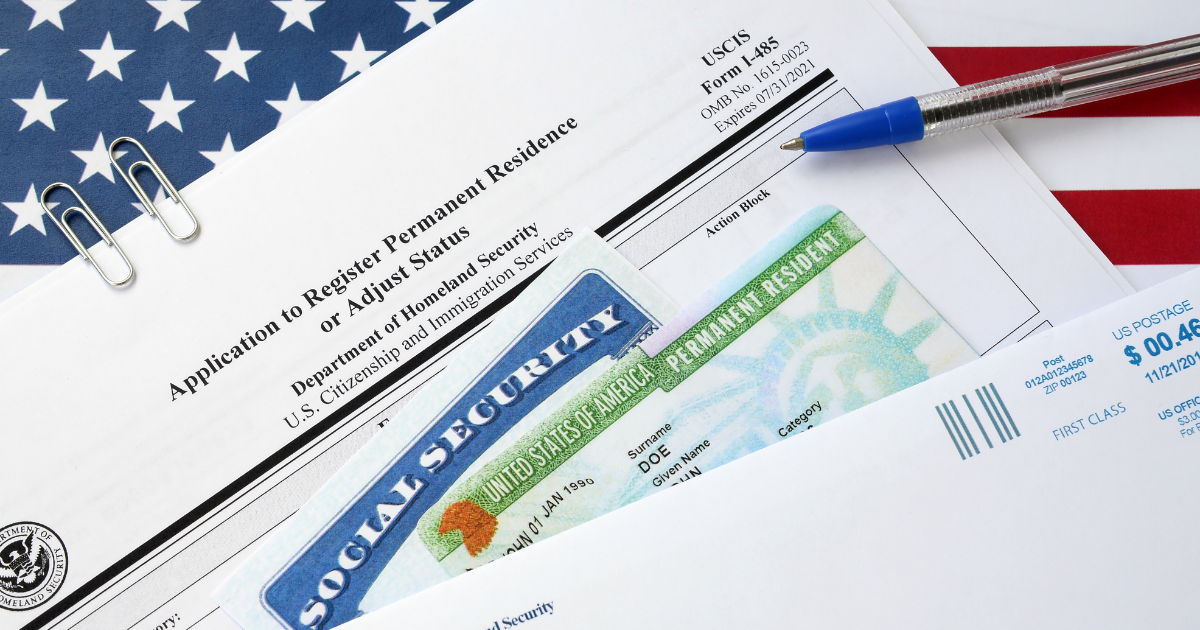Introduction:
Obtaining a Green Card through marriage is a significant step in the immigration journey for many individuals seeking to build a life in the United States. This blog post will guide you through the requirements, application process, potential pitfalls, and the benefits associated with this path to permanent residency.
Eligibility Requirements:
Green Card through marriage involves navigating a set of eligibility requirements that serve as the foundation for a successful application. Understanding these requirements in detail is crucial for individuals seeking permanent residency in the United States through this significant life event.
-
Bona Fide Marriage:
The cornerstone of eligibility for a Green Card through marriage is the existence of a bona fide, genuine marital relationship. Immigration authorities seek assurance that the marriage is not entered into solely for immigration purposes. This requires providing substantial evidence of the authenticity of the relationship. Documentation supporting a bona fide marriage includes joint financial assets, shared living arrangements, and testimonies from friends and family attesting to the legitimacy of the union.
-
Petitioner’s Status:
The eligibility criteria hinge on the petitioner’s status, i.e., the spouse who is a U.S. citizen or a permanent resident. The petitioner must meet the legal requirements of sponsoring their foreign-born spouse for a Green Card. For U.S. citizens, there are generally no limitations on the number of immediate relatives (including spouses) they can sponsor. Permanent residents, however, may face certain restrictions, and it’s crucial to be aware of these limitations.
-
Marriage Validity:
The marriage must be legally valid according to the laws of the jurisdiction where it took place. Immigration authorities recognize marriages performed abroad, but they must be valid in the country of celebration and follow any applicable U.S. state laws. Understanding the legal validity of the marriage ensures compliance with immigration requirements.
-
Entry Inspection:
The foreign-born spouse must have entered the United States legally. This typically involves inspection and admission by a U.S. Customs and Border Protection (CBP) officer. Individuals who entered the U.S. without inspection or admission may face additional challenges in the Green Card application process.
-
Inadmissibility Factors:
Certain factors may render an individual inadmissible for a Green Card. These factors include a history of criminal activities, health-related issues, and potential security concerns. Understanding the grounds of inadmissibility is crucial, as waivers or additional documentation may be necessary to overcome these obstacles.
-
Removal of Conditions (if applicable):
In cases where the marriage is less than two years old at the time of obtaining the Green Card, the foreign-born spouse initially receives a conditional Green Card. To maintain permanent residency, the conditions must be removed within the 90 days preceding the card’s expiration. This process involves jointly filing Form I-751, Petition to Remove Conditions on Residence.

Documentation Checklist:
To substantiate eligibility, meticulous documentation is paramount. A comprehensive checklist may include:
- Marriage certificate
- Joint tax returns
- Joint bank account statements
- Lease or mortgage documents for shared residence
- Utility bills in both spouses’ names
- Affidavits from friends and family
- Photographs depicting the couple’s life together
- Any other relevant evidence demonstrating the authenticity of the marital relationship.
The Application Process:
Green Card through marriage involves navigating a comprehensive application process. Understanding each step in detail is crucial for a successful outcome. Here is a detailed guide to the application process:
-
Initiating the Process:
The application process begins with the U.S. citizen or permanent resident spouse filing Form I-130, Petition for Alien Relative. This form establishes the qualifying relationship and is submitted to U.S. Citizenship and Immigration Services (USCIS). Along with the form, the petitioner must provide supporting documents proving the legitimacy of the marital relationship.
-
USCIS Processing:
Once USCIS receives Form I-130, they will review the petition and supporting documentation. If additional evidence is required or if any issues arise, USCIS may issue a Request for Evidence (RFE). Once satisfied, USCIS will approve the petition, indicating the qualifying relationship between the petitioner and the foreign-born spouse.
-
National Visa Center (NVC) Processing (if applicable):
In some cases, if the foreign-born spouse is outside the U.S., the approved petition may be forwarded to the National Visa Center. The NVC will provide instructions for visa processing, including fees and required documentation.
-
Adjustment of Status (Form I-485):
If the foreign-born spouse is already in the U.S., they can file Form I-485, Application to Register Permanent Residence or Adjust Status, concurrently with Form I-130 approval. This form is the primary application for the Green Card and requires extensive documentation, including proof of identity, medical examination results, and financial support.
-
Biometrics Appointment:
After submitting Form I-485, the foreign-born spouse will be scheduled for a biometrics appointment. During this appointment, fingerprints and a photograph will be taken for background checks.
-
Work Authorization (Optional):
While waiting for the Green Card, the foreign-born spouse may apply for work authorization by filing Form I-765, Application for Employment Authorization. This allows them to legally work in the U.S. during the application process.
-
Adjustment of Status Interview:
Both spouses will be required to attend an adjustment of status interview. This interview aims to verify the authenticity of the marital relationship and ensure eligibility for the Green Card. Adequate preparation, including reviewing submitted documentation, is crucial for a successful interview.
-
Conditional Green Card (if applicable):
If the marriage is less than two years old at the time of obtaining the Green Card, the foreign-born spouse will initially receive a conditional Green Card. To remove conditions and maintain permanent residency, the couple must jointly file Form I-751, Petition to Remove Conditions on Residence, within 90 days before the card’s expiration.
-
Permanent Green Card:
Upon successful completion of the application process, including the removal of conditions if applicable, the foreign-born spouse will receive a permanent Green Card, granting them permanent residency in the United States.
Common Pitfalls to Avoid:
While pursuing a Green Card through marriage, applicants should be aware of common pitfalls that could hinder the process. Inadequate documentation, inconsistent information, or suspicions of marriage fraud can lead to delays or denials. It is essential to be transparent, providing truthful and comprehensive details throughout the application. Seeking legal guidance can help applicants navigate potential pitfalls and enhance the likelihood of a positive outcome.
Obtaining a Green Card through marriage is a transformative journey, but it comes with potential pitfalls that applicants must navigate carefully. Understanding and avoiding these common pitfalls is crucial for a successful application. Let’s delve into the details:
-
Insufficient Documentation:
One of the most common pitfalls is providing inadequate documentation to support the legitimacy of the marital relationship. Insufficient evidence, such as a lack of joint financial records, shared living arrangements, or testimonials from friends and family, can raise suspicions of marriage fraud. Applicants must meticulously gather and present comprehensive documentation to validate the authenticity of their marriage.
-
Inconsistencies in Information:
Consistency is key in the Green Card application process. Any discrepancies or inconsistencies in the information provided, whether in forms, interviews, or supporting documents, can trigger scrutiny from immigration authorities. Applicants should ensure that all details, from personal information to the history of the relationship, align consistently throughout the application.
-
Failure to Address Previous Immigration Issues:
Individuals with previous immigration issues, such as visa overstays or unauthorized employment, must address these issues transparently in the Green Card application. Failure to disclose and resolve past immigration challenges can lead to delays or denials. It is essential to seek legal advice to navigate any potential complications arising from prior immigration matters.
-
Ignoring Inadmissibility Factors:
Certain factors, such as criminal history, health-related issues, or security concerns, can render an individual inadmissible for a Green Card. Ignoring these factors or failing to address them appropriately can result in application denials. Applicants should be aware of potential inadmissibility issues and, if necessary, seek legal counsel to explore waivers or remedies.
-
Not Staying Informed About Changes in Law:
Immigration policies and regulations are subject to change. Not staying informed about updates in immigration law can lead to inadvertent non-compliance. Applicants should regularly check for updates and seek guidance from legal professionals to ensure their application aligns with the latest requirements.
-
Failure to Remove Conditions on Residence:
For couples receiving a conditional Green Card due to a marriage less than two years old, the failure to timely file Form I-751, Petition to Remove Conditions on Residence, can result in the expiration of the Green Card. It is crucial to adhere to the 90-day filing window to remove conditions and transition to a permanent Green Card.
-
Overlooking Changes in Marital Status:
Changes in marital status, such as divorce or separation, during the application process can significantly impact the Green Card case. It is imperative to promptly update immigration authorities about any changes in the marital relationship to prevent complications and ensure accurate processing.
-
Relying Solely on Online Resources:
While online resources provide valuable information, relying solely on them without seeking professional advice can be a pitfall. Each case is unique, and immigration laws can be complex. Consulting with experienced immigration professionals or legal experts ensures a nuanced understanding of individual circumstances and tailored guidance through the application process.
Benefits and Responsibilities:
Obtaining a Green Card through marriage comes with numerous benefits, such as the ability to live and work permanently in the United States. However, it also entails responsibilities, including compliance with U.S. laws and obligations. Understanding the rights and duties associated with permanent residency is crucial for a smooth transition into American society.
Benefits of Getting a Green Card
-
Permanent Residency:
The primary benefit of a Green Card is the grant of permanent residency in the United States. This allows individuals to live in the country indefinitely, providing stability and a sense of belonging.
-
Work Authorization:
Green Card holders are eligible to work in the U.S. without the need for a separate work permit. This opens up a plethora of employment opportunities, allowing individuals to pursue their careers without restrictions.
-
Travel Flexibility:
Green Card holders can travel in and out of the United States more freely compared to those with temporary visas. While there are still certain considerations, such as maintaining residence, they have the flexibility to travel for extended periods.
-
Access to Social Services:
Green Card holders have access to various social services, including education and healthcare, on par with U.S. citizens. This ensures a comprehensive support system for a fulfilling life in the United States.
-
Path to Citizenship:
Holding a Green Card is a crucial step toward U.S. citizenship. After meeting certain residency requirements, individuals may apply for naturalization, further solidifying their ties to the country.
Responsibilities of Having a Green Card
-
Compliance with U.S. Laws:
Green Card holders must abide by all federal, state, and local laws. Failure to comply can lead to legal consequences, including deportation.
-
Maintaining Permanent Residence:
Green Card holders are required to maintain the U.S. as their primary place of residence. Prolonged absences without obtaining a re-entry permit can jeopardize permanent residency.
-
Notification of Address Changes:
Individuals must inform USCIS of any changes in their address within 10 days of moving. This ensures that official communication reaches them promptly.
-
Tax Obligations:
Green Card holders are subject to U.S. tax laws on their worldwide income. Complying with tax obligations, including filing annual tax returns, is a key responsibility.
-
Selective Service Registration:
Male Green Card holders between the ages of 18 and 25 are required to register with the Selective Service. Failure to register can impact eligibility for certain benefits and lead to citizenship application denials.
-
Renewal of the Green Card:
Green Cards have an expiration date, usually 10 years from issuance. It is the responsibility of the holder to renew the card before it expires to maintain valid legal status.
-
Adherence to Travel Rules:
Green Card holders must adhere to travel rules to avoid jeopardizing their permanent resident status. Extended stays outside the U.S. may lead to questions about residency intentions.
-
Avoiding Criminal Activity:
Engaging in criminal activities can result in serious consequences, including deportation. Green Card holders must maintain a clean legal record.
Frequently Asked Questions (F.A.Q.):
How long does the Green Card through marriage process take?
The timeline can vary, but on average, it takes several months to over a year from the initial petition to obtaining the Green Card.
Can a Green Card be denied?
Yes, if the immigration authorities suspect fraud, find insufficient evidence, or identify other issues, the application may be denied.
What rights does a Green Card holder have?
Green Card holders have the right to live and work permanently in the U.S. They can also apply for citizenship after meeting certain criteria.
Can I travel outside the U.S. with a Green Card?
Yes, Green Card holders can travel outside the U.S., but there are certain considerations and rules to follow to maintain their permanent resident status.
Should I seek legal assistance for the application process?
While it is not mandatory, seeking legal guidance can be beneficial to navigate complexities and ensure a thorough and accurate application.
Can I work in the U.S. while my Green Card application is pending?
In certain cases, individuals with pending Green Card applications may be eligible to apply for an employment authorization document (EAD), allowing them to work while awaiting the final decision.
What is the difference between a conditional and a permanent Green Card?
Initially, spouses may receive a conditional Green Card valid for two years. It is crucial to understand the process of removing these conditions within the 90 days preceding the card’s expiration to obtain the permanent Green Card.
Can I include my children in the Green Card application?
Yes, unmarried children under the age of 21 may be included as dependents in the Green Card application. Separate applications are typically required for each child.
Additional Considerations:
While the Green Card through marriage process primarily revolves around the relationship between spouses, certain additional factors merit consideration. Changes in marital status during the application process, such as divorce or separation, can impact the case. It is imperative to update the immigration authorities promptly about any such developments to avoid complications.
Furthermore, applicants should be mindful of the evolving immigration policies and regulations. Staying informed about changes in the law can aid in navigating the process more effectively. Engaging with reputable immigration professionals or legal counsel can provide valuable insights into the latest developments and ensure compliance with any updated requirements.
A Wise Approach to the Green Card Process:
Embarking on the Green Card journey through marriage requires not only adherence to the procedural aspects but also a thoughtful and strategic approach. Transparency and honesty throughout the application process are foundational. Applicants should be prepared to provide detailed information about their relationship, financial interdependence, and shared responsibilities.
Seeking the guidance of experienced immigration professionals or legal experts can be a prudent step. These professionals possess the knowledge and expertise to navigate potential challenges, ensuring that the application aligns with the immigration authorities’ expectations.
Conclusion:
In concluding this guide, it is essential to underscore the transformative nature of obtaining a Green Card through marriage. This journey is not merely a legal process; it is a gateway to new opportunities, experiences, and a future in the United States. By understanding the requirements, avoiding pitfalls, and approaching the process with diligence, individuals can navigate this path with confidence.
Remember, each case is unique, and while this guide provides a comprehensive overview, individual circumstances may vary. If in doubt or facing complexities, seeking professional advice is a wise and proactive measure. The United States, with its diverse opportunities, welcomes those on the path to permanent residency through marriage, fostering a journey that holds the promise of a fulfilling and enriching life.











